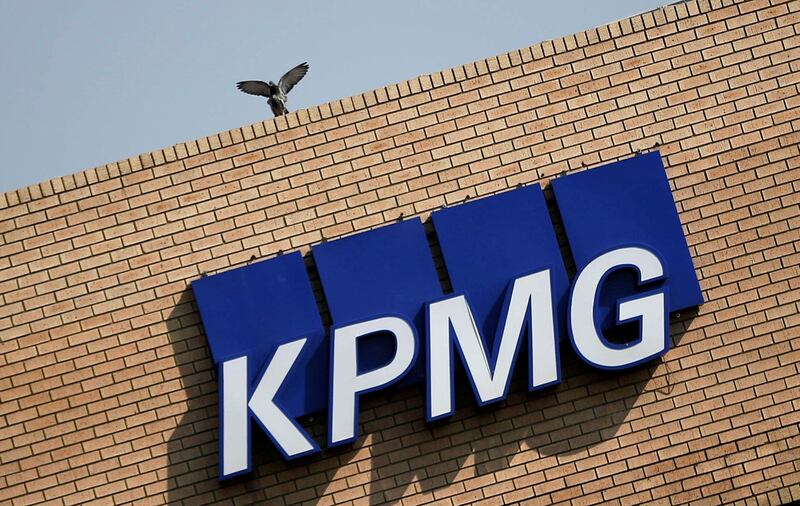UAE's top banks, which boosted profitability in 2017, are likely to continue this trend this year, with digitisation and downsizing trumping costs of the 5 per cent VAT introduced this year and new accounting standards, according to the accountants KPMG.
UAE banks eked out profits last year amid signs of increased demand for debt in the wake of the three-year oil slump as well as a decline in bad loans.
And while VAT and a new accounting standard this year may cost the banks money, they are becoming nimbler through digitisation and relying less on human resources and large branch networks. That should ensure continued profitability this year, said Emilio Pera, head of financial services at KPMG Lower Gulf.
"We see a positive outlook for growth, we expect the improving trend of last year to continue this year," Mr Pera told The National on the sidelines of a media conference in Dubai to discuss topics that will impact the banking sector this year.
“If you look at the impact of the oil price, it doesn’t show in the results of banks and banks have spent a lot of time and effort to limit the costs despite the fact regulation and innovation is something that they have to spend on.”
_______________
Read more:
[ Abraaj says KPMG review finds no evidence of fund misuse ]
[ Abdul Aziz Al Ghurair: Digital banking gaining speed in the UAE ]
_______________
The profit of the top 10 listed banks in the UAE rose 6.6 per cent to $9.8 billion in 2017 from $9.2bn in 2016, KMPG said. At the same time, the assets of those banks rose 5.2 per cent to $578.4bn from $549.7bn in 2016. Net impairments fell 7.6 per cent to $3.4bn compared to $3.7bn.
The drop in non-performing loans comes as bad debt related to the SME debt crisis of 2015 dissipates and more banks start to use the credit bureau in a more meaningful manner after some initial teething problems the bureau had. The richer information the banks now have on their customers allows them to manage risks better, Mr Pera said.
“Now banks have a better view of their clients, their credit profiles,” he said. “It’s had a positive impact. It’s improved the quality of the loan book.”
New accounting standards that banks have to start using this year, the International Financial Reporting Standard 9, will force banks to estimate in advance on a quarterly basis the provisions they need to take against bad debt instead of booking impairments when they happen. That should help banks manage risks better in the long run, KPMG said.
While the cost-to-income ratio rose slightly to 35.9 per cent in 2017 from 35.8 per cent in 2016, that was largely due to the expenses incurred by banks investing in new technologies that will streamline their operations in the long run. But at the same time, banks have reduced headcounts and branch networks to bring costs down at a time when most transactions are done digitally and customers only typically go to the bank for more complicated services and products such as mortgages and financial advice.
Banks in the UAE have been accelerating in recent years the shift from a traditional branch model to one based more on online banking. Lenders including Mashreq, HSBC and Abu Dhabi Islamic Bank have been investing in artificial intelligence and partnering with fintech companies to streamline operations. Emirates NBD, Dubai’s biggest bank by assets, said in July it plans to spend Dh1bn on technology over the next three years to help reduce costs.
With regards to VAT, KPMG wasn’t able to say by how much the levy will hurt banks' bottom lines but that it would add pressure on profitability. Banks are still waiting for a review from the central bank on whether or not lenders can pass on VAT to customers for fee and commission services or whether they have to absorb it, which most are currently doing. VAT is not applied to interest from loans but only to products and services that have an explicit fee or commission.





